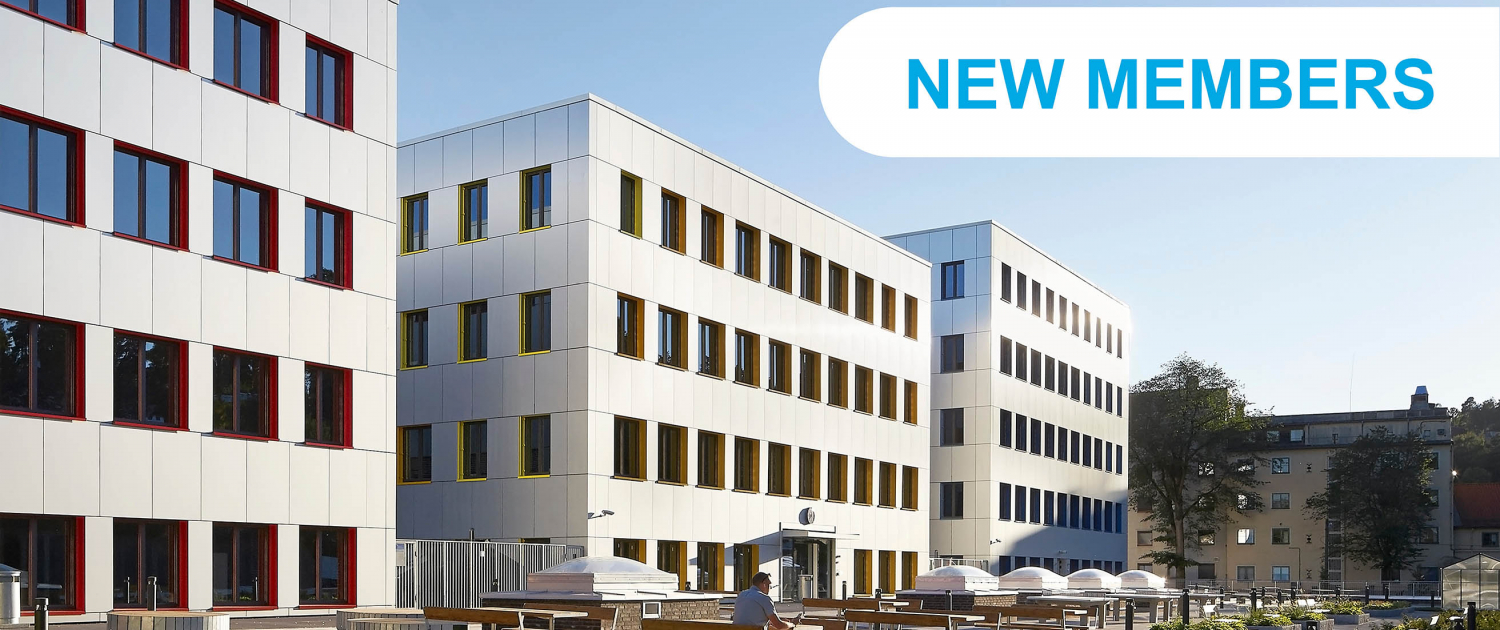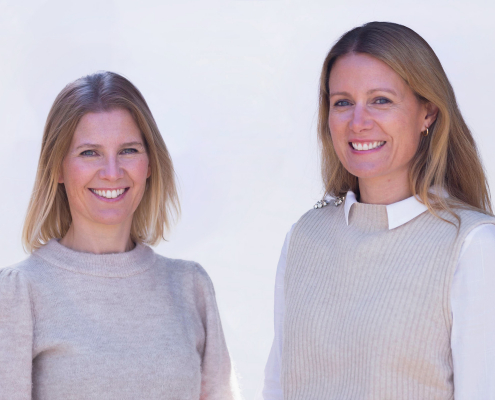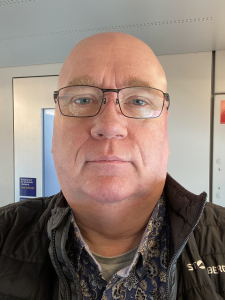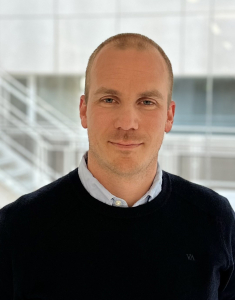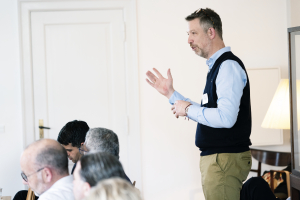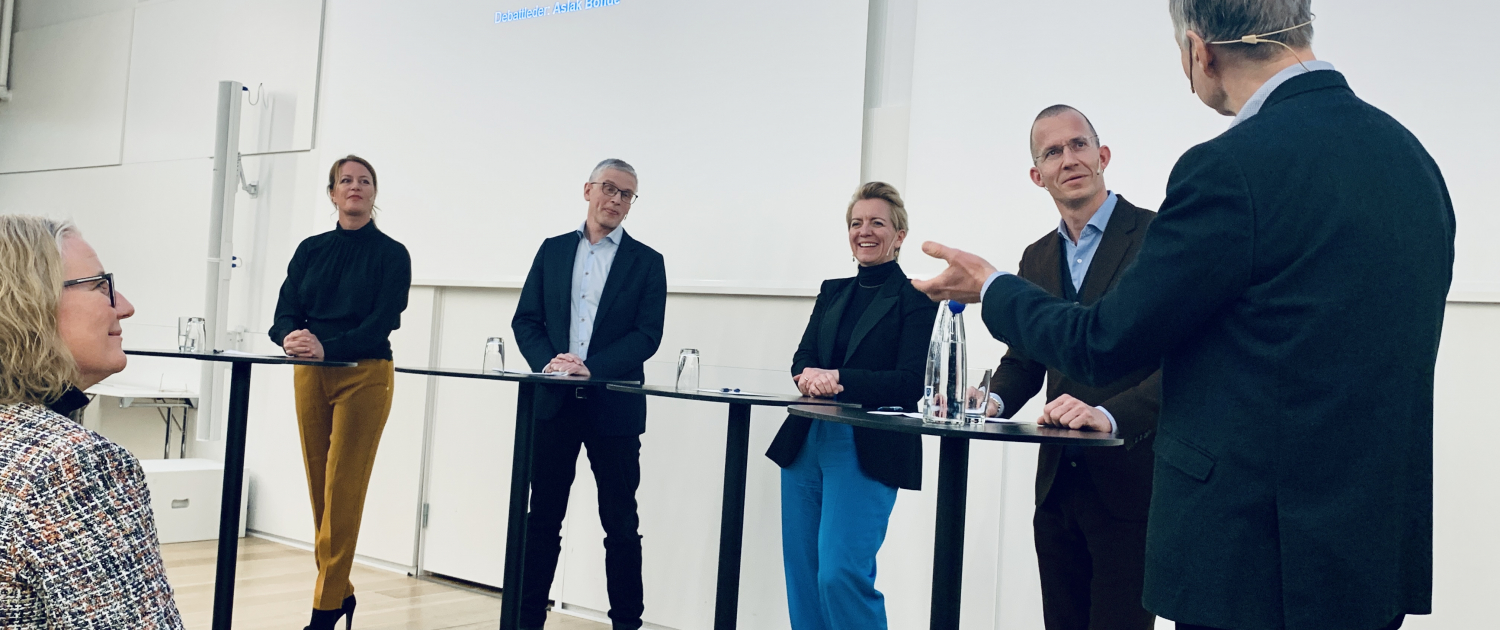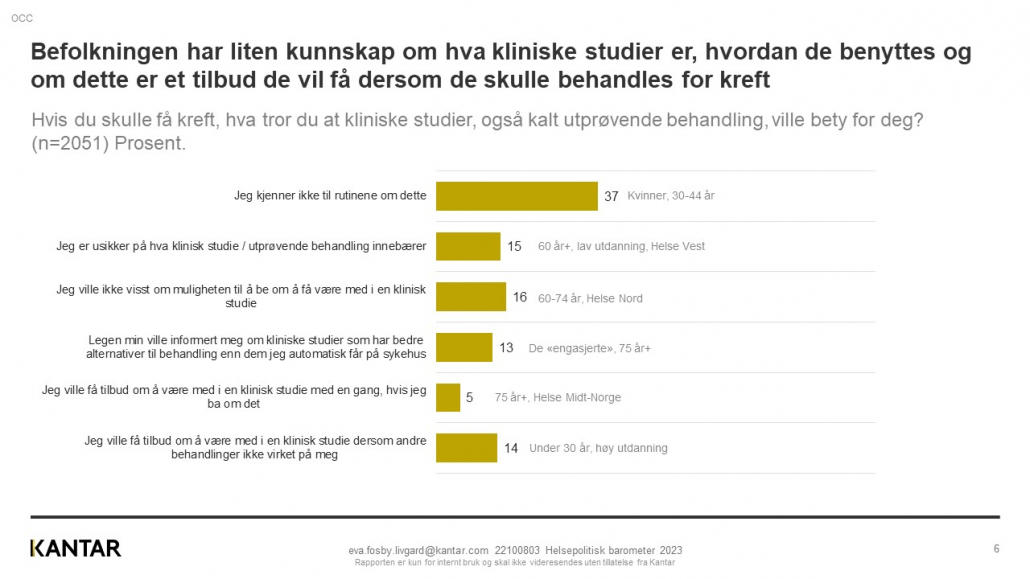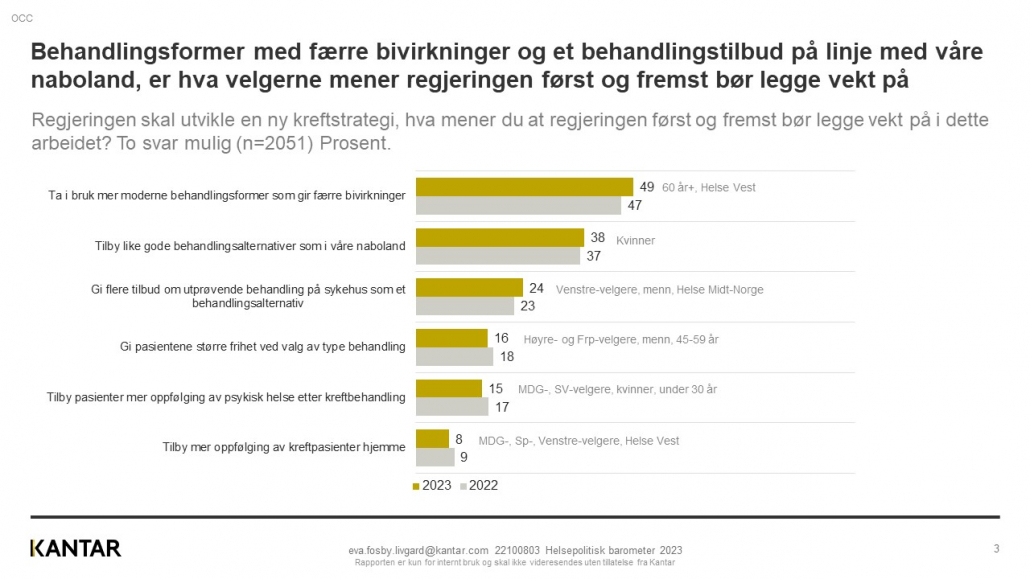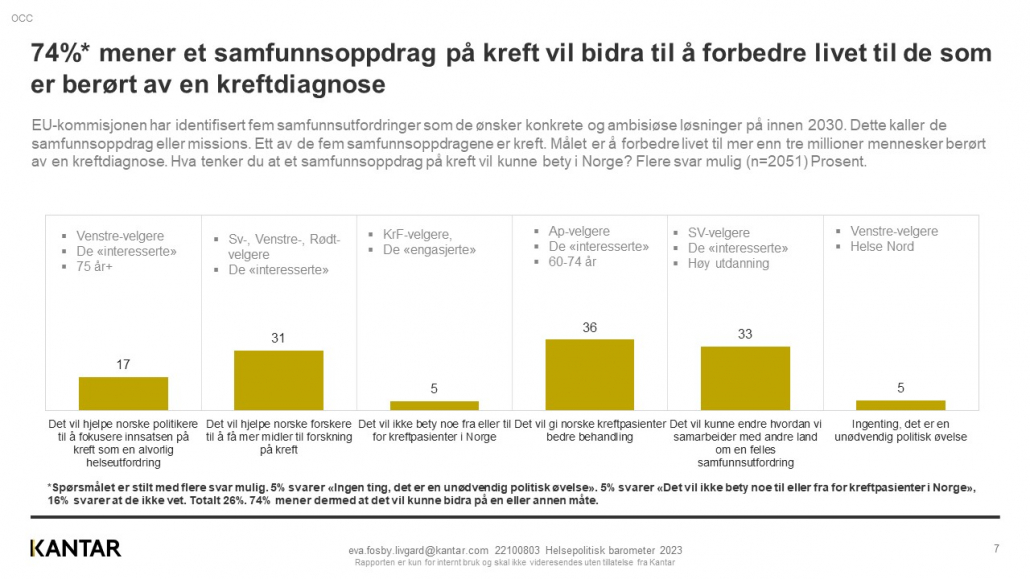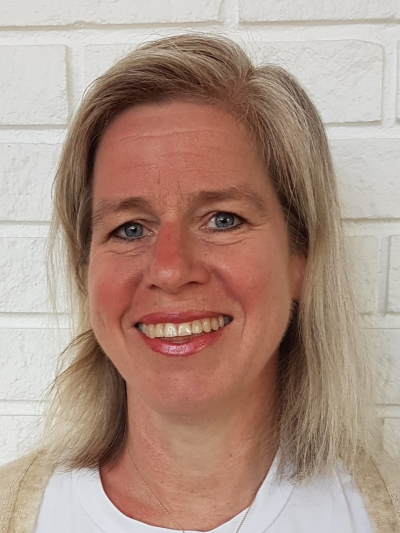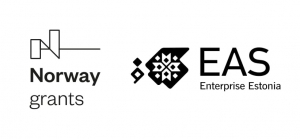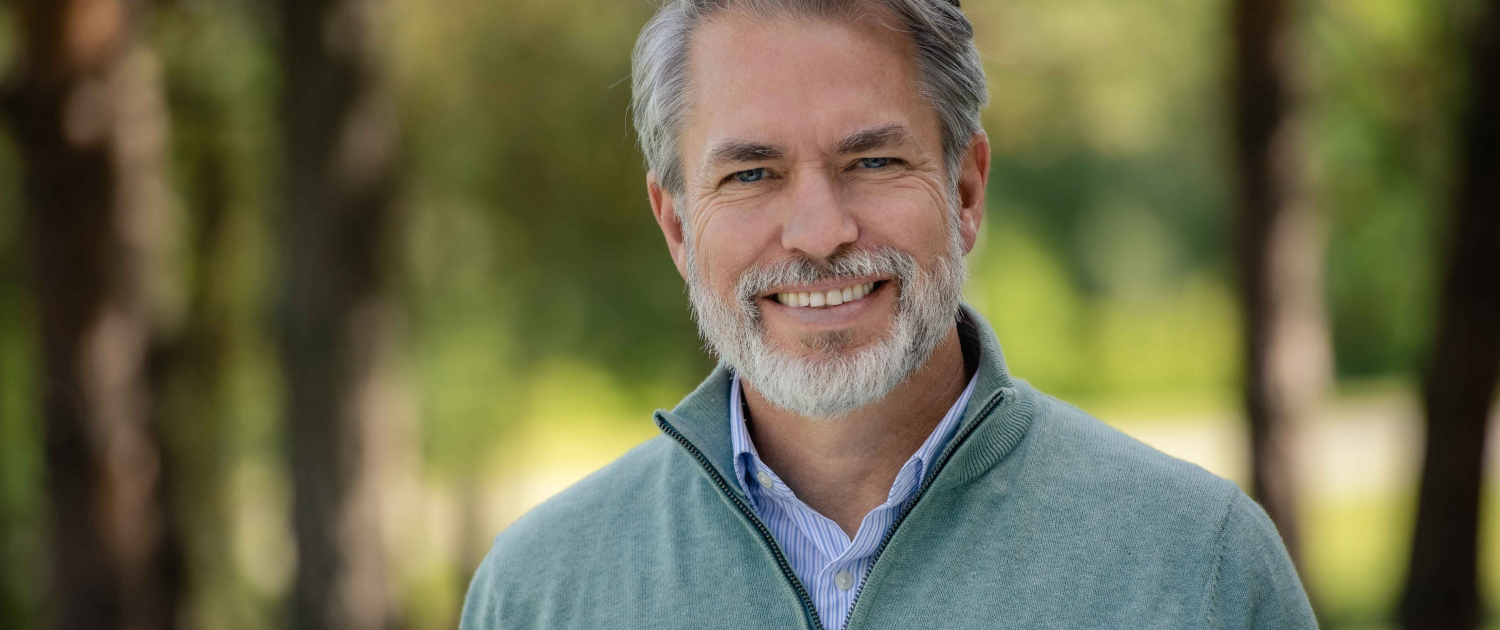
Ole Dahlberg, CEO of Curida Diatec, reveals where he thinks the health industry is headed, why Norway needs to own its medical manufacturing, and how we might learn from the Americans.
“I wish that we can make things happen faster here in Norway. We can learn from the Americans that you don’t need to have all details in place to get going. If we commit to invest in the health industry, it will not go wrong.”
Ole Dahlberg is the new CEO of Curida Diatec. He has more than 25 years’ experience from the life sciences. He was Managing Director for Thermo Fisher Scientific Norway for eight years, and later Vice President for Thermo Fisher working out of California, USA. He has also co-founded three start-up companies, and sits on several boards, including Oslo Cancer Cluster, Nadeno, DoMore Diagnostics, and Caedo Oncology.
“If we commit to invest in the health industry, it will not go wrong.”
Why does this accomplished international business leader wish to invest his time in Norway?
“There is a lot of great research being done here, but it needs to translate to value creation for companies, and we need more commercial partners to help put products on the market.”
Is Norway prepared?
This is where Curida comes into the picture. Curida is a Norwegian company that helps biotech companies that want to scale up manufacturing, or that want to transfer their manufacturing and need help with quality improvement.
“Norway is at a crossroads when it comes to national preparedness.”
“Curida is at an inflection point right now and will need to make significant investments to upgrade. There is interest to invest in the company, especially from international investors. At the same time, Norway is at a crossroads when it comes to national preparedness. The government needs to make a strategic choice about which manufacturing processes they want to control. I hear many stakeholders calling for a clear direction from the government,” said Dahlberg.
A missed opportunity
Dahlberg has been in a similar situation before. When he was Managing Director for Thermo Fisher Scientific, the company together with Novartis wanted to invest in production facilities for cell therapies in Norway. There were already advanced laboratories in use at the Norwegian Institute of Public Health.
“This demonstrated we could do it. But we were not able to reach an agreement with the government on how to transfer technology and scale the business on reasonable terms.”
Instead, Thermo Fisher Scientific set up production facilities in Vilnius, Lithuania, where they received better support from the government. Today, the Vilnius site is scaling fast with 1 900 employees that are manufacturing world-class products and building sought after competence.
“The pandemic demonstrated the importance of manufacturing control and building key competence.”
“Back then it was less important to me as an international industry leader; I had to make the right decision for Thermo Fisher Scientific. As a Norwegian however, this was clearly a missed opportunity. The pandemic demonstrated the importance of manufacturing control and building key competence.”
Time to take a risk!
The health industry in Norway has grown rapidly the last decade. A new generation of up-and-coming researchers are eager to take a chance and create companies. More start-ups are spun out from research than before. There have already been successful examples of companies on the stock market.
“The problem is that many of the companies don’t scale. We need politicians to work closely with the industry and innovators. Politicians also need to enable cross-ministry collaborations and initiatives, and finally agree to a common purpose and a few goals. We have a good foundation in Norway with much experience in process industry, and tradition and reputation for our ability to work internationally.”
“We need politicians to work closely with the industry and innovators.”
Dahlberg also thinks the politicians should start promoting Norway as a place for international collaboration and technological innovation, as well as a country that attracts life science talents.
“Companies have difficulties finding the right talents. I think politicians should make sure students want to come here and that the networks attract more high-skilled people. We need both young and old, different nationalities and of all competencies. We must help talent immigrants manage the complex tax situation when they move to Norway.”
A Norwegian success story
Curida is one of the recent success stories from the Norwegian health industry. The company has had an incredible development over the last eight years, increasing its annual turnover from NOK 50 million in 2015 to NOK 200 million today. The company has already lined up agreements with international companies to increase that number significantly in the next 18 months.
“It is crucial for the Norwegian government to support the industry now if they want to have influence and necessary control on key manufacturing in Norway.”
“Curida is a fully owned Norwegian company, and it is no longer a start-up, but is scaling fast. We have signed new contracts and have more customers coming in. We will invest in new technologies, upgrade our production processes, build competence and organisation, and initiate great collaborations. It is crucial for the Norwegian government to support the industry now if they want to have influence and necessary control on key manufacturing in Norway,” said Dahlberg.
As difficult as landing a plane …
When it comes to manufacturing medicines, the tech transfer process is extremely time-consuming, complicated, and unpredictable. Projects can run out of time, costs can increase, and the customer might lose its window to the market or have to take existing products off the market.
At the Curida site in Elverum, there are over 130 employees spanning 20 nationalities, who all hold unique competencies in this field. Some of them have been with the company since its establishment almost 30 years ago.
“The highly skilled employees make Curida great at tech transfer. It is a bit like landing an airplane. There are a lot of moving parts, and many things can go wrong. Curida has done an impressive number of tech transfers and shown every single time that we can deliver on quality, time, and price.”
It is often in the tech transfer processes that small companies struggle.
“We do not have a traditional pharma industry, like in Sweden, and that is why we need to scale fast.”
“If the companies manage to do the right job and surround themselves with the right partners, they can quickly enter clinical phase. This is where Norway needs to expand the value chain. We do not have a traditional pharma industry, like in Sweden, and that is why we need to scale fast,” said Dahlberg,
A growing innovation milieu
Dahlberg has been on the board of Oslo Cancer Cluster for the last seven years and followed how the clusters have made an impact on Norwegian innovation.
“Oslo Cancer Cluster has been a pioneer in this field, with a clear oncology focus. They have started their own incubator and with their close connection to Radforsk Investment Fund, we see many exciting companies coming through the organisation. Oslo Cancer Cluster is an extremely important facilitator, represents diverse members and has become a well-recognized international brand.
“The challenge going forward will be to understand the value proposition to our members and listen closely to what they need. It is an exciting road we have ahead of us, and I look forward to contributing to the organisation’s future direction.”
The post Learning from the Americans first appeared on Oslo Cancer Cluster.
